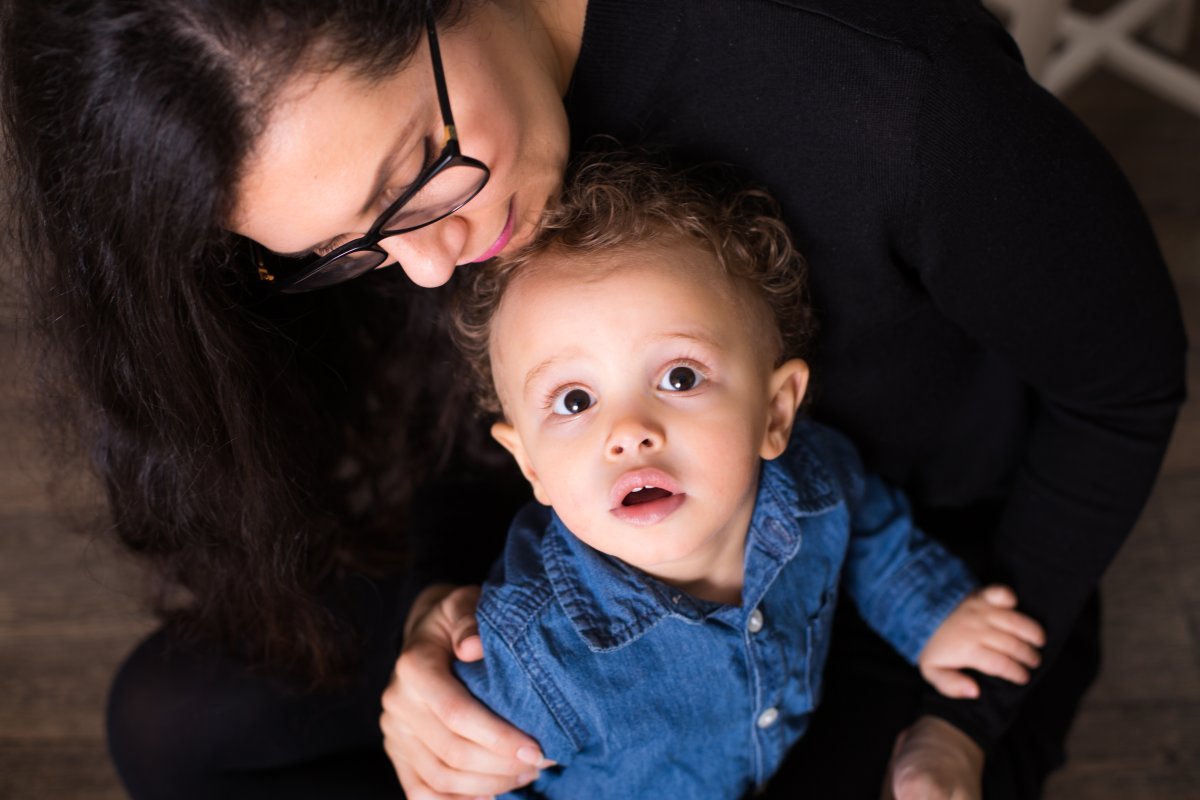At the age of 14 months old, little Lenny has about 26 brothers and sisters that he’s never met.

His biological siblings (also known as bio-siblings or diblings) live in cities across the world — just one other lives in Canada.
READ MORE: Young, single women turning to sperm donors to conceive
Lenny came into the world via sperm donor, the son of a woman who was told she would never be able to have children.
“A few years ago, my doctor told me that I had fertility issues,” Anne-Élodie, 35, told Global News.
“I wasn’t able to talk about this to my friends, my family and I kept this from them.”
READ MORE: Everything men and women should know about fertility testing
After being told her body was already showing early signs of menopause, Anne-Élodie decided to see if she could have a baby using a sperm donor.
“The doctor said at the start that it was impossible, but with treatment and luck, I feel so lucky to have Lenny,” she said.
Dr. William Buckett, director of the MUHC fertility clinic, explained women have the option of choosing an “open ID” donor, complete with a photo, an essay and a full medical history.
“Once the child turns 18, he or she will be able to contact the sperm bank to receive the latest contact information on the donor,” Buckett said.
READ MORE: Single parent by choice: Women turn to sperm donors to conceive
That’s the decision Anne-Élodie made and after giving birth, she started looking for families to share her journey with.
She didn’t know that groups existed to contact families based on the donor’s ID number.
READ MORE: 7 fertility myths and misconceptions Canadian women need to know
“It was selfish to decide to have a baby on my own and I thought, ‘He won’t have a father,’ and I wanted him to be able to have information on the donor,” she said.
“I feel guilty for my choice. I really wanted to have a child and I’m not sure if my baby will one day be mad at me.”
READ MORE: Single Momtreal: An online resource for single mothers across Montreal
The private Facebook group of about 11 families has been useful to share information, said Anne-Élodie, including tips on allergies and discussions about habits and personality characteristics.
“It’s interesting to see the similarities between the babies. They really look alike,” she told Global News.
“My baby is blond, but the donor is African-American and I have brown hair.”
READ MORE: Assisted reproduction rules to be revamped by Health Canada
Coming from a conservative family in France, Anne-Élodie admitted she sometimes feels judged for her decision to be a single mother.
“The definition of family is different now.”
She said she isn’t sure if Lenny will ever meet his bio-siblings, but it’s definitely not out of the question.
READ MORE: Looking for an egg or sperm donor? Here’s what you need to know
“I don’t know if I’ll have the chance to meet some of the parents and the babies, but I know that they asked the question a few years ago,” she told Global News.
“Most of them said they will let the children decide. It’s a good extended family. I get excited when I see there’s a post in the group.”
“In fact, we are not family, but it’s interesting to see that there’s other people that made exactly the same choice.”



Comments